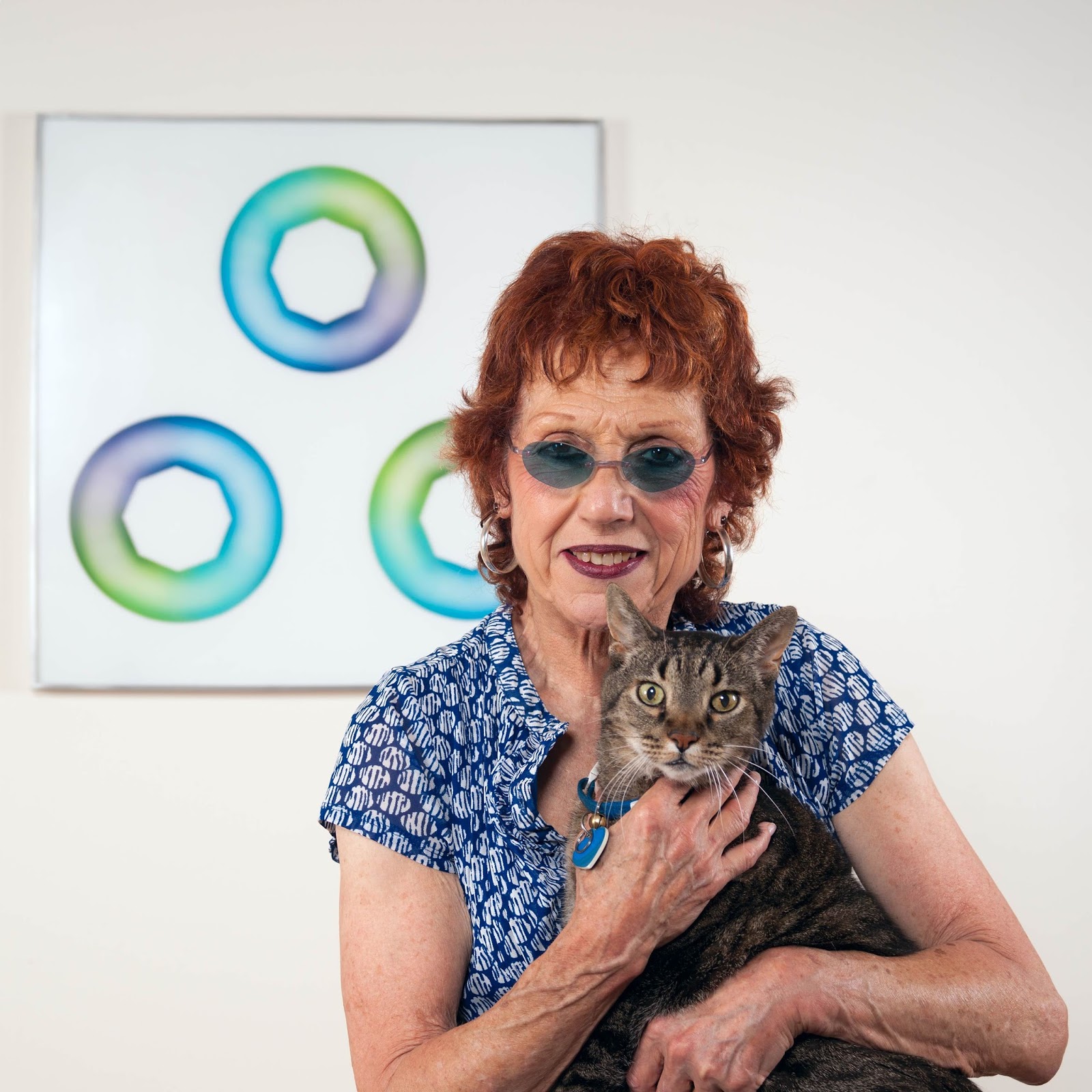12/09/15
Interview: Judy Chicago
Star Cunts & Other Attractions
Riflemaker
14 September – 31 December 2015
The World Goes Pop
Tate Modern
17 September 2015 – 24 January 2016
In 1968, Judy Chicago (born Judith
Sylvia Cohen, 1939) chose not to participate in the California Women in the
Arts exhibition at the Lytton Center because she
didn’t want to show in any group defined as “women”, “Jewish” or
“California”. A couple of years later, however, she coined the term “feminist
art” and she then went on to become known worldwide for her epic $250,000 installation,
The Dinner Party (1979) – a large triangular table, measuring 48ft by 43ft by
36ft (14.6 metres by 13 metres by 11 metres), with 39 place settings, each commemorating
a historical or mythical female figure. Throughout her career, Chicago has been
an outspoken advocate for female artists and has written, taught and co-founded
educational establishments in a bid to put an end to what she terms the
“institutional failure in our universities and museums to teach the history of
feminist art”.

In 2011, the Pacific Standard Time
project at the Getty Center, Los Angeles, brought attention to a lot of
Chicago’s early work and reminded people that there is more to her than her
iconic place settings. The following year, she had a show at Riflemaker in
London, and the year after that, she was included in the Spotlight section – a
section for artists whom the curator deems to have been overlooked and
deserving of re-evaluation – of Frieze Masters, also in London.
Read the rest of this interview here